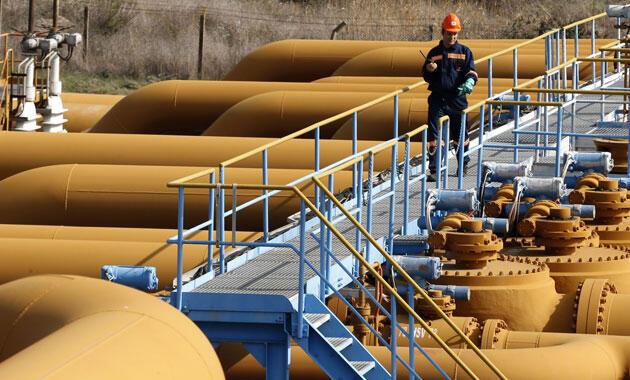Human Lives Human Rights: While the US military has formally ended its occupation of Iraq, some of the largest western oil companies, ExxonMobil, BP and Shell, still remain.
On November 27, 38 months after Royal Dutch Shell announced its pursuit of a massive gas deal in southern Iraq, the oil giant had its contract signed for a $17bn flared gas deal.
Three days later, the US-based energy firm Emerson submitted a bid for a contract to operate at Iraq’s giant Zubair oil field, which reportedly holds some eight million barrels of oil.
Earlier this year, Emerson was awarded a contract to provide crude oil metering systems and other technology for a new oil terminal in Basra, currently under construction in the Persian Gulf, and the company is installing control systems in the power stations in Hilla and Karbala.
Iraq’s supergiant Rumaila oil field is already being developed by BP, and the other supergiant reserve, Majnoon oil field, is being developed by Royal Dutch Shell. Both fields are in southern Iraq.
According to the US Energy Information Administration (EIA), Iraq’s oil reserves of 112 billion barrels ranks second in the world, only behind Saudi Arabia. The EIA also estimates that up to 90 per cent of the country remains unexplored, due to decades of US-led wars and economic sanctions.
“Prior to the 2003 invasion and occupation of Iraq, US and other western oil companies were all but completely shut out of Iraq’s oil market,” oil industry analyst Antonia Juhasz told Al Jazeera. “But thanks to the invasion and occupation, the companies are now back inside Iraq and producing oil there for the first time since being forced out of the country in 1973.”
Juhasz, author of the books The Tyranny of Oil and The Bush Agenda, said that while US and other western oil companies have not yet received all they had hoped the US-led invasion of Iraq would bring them, “They’ve certainly done quite well for themselves, landing production contracts for some of the world’s largest remaining oil fields under some of the world’s most lucrative terms.
Dr Abdulhay Yahya Zalloum, an international oil consultant and economist who has spent nearly 50 years in the oil business in the US, Europe, Asia and the Middle East, agrees that western oil companies have “obtained concessions in Iraq’s major [oil] fields”, despite “there being a lack of transparency and clarity of vision regarding the legal issues”.
Dr Zalloum added that he believes western oil companies have successfully acquired the lions’ share of Iraq’s oil, “but they gave a little piece of the cake for China and some of the other countries and companies to keep them silent”.
In a speech at Fort Bragg in the wake of the US military withdrawal, US President Barack Obama said the US was leaving behind “a sovereign, stable and self-reliant Iraq, with a representative government that was elected by its people”.
A White House press release dated November 30 titled, “Joint Statement by the United States of America and the Republic of Iraq Higher Coordinating Committee”, said this about “energy co-operation” between the two countries:
“The United States is committed to supporting the Republic of Iraq in its efforts to develop the energy sector. Together, we are exploring ways to help boost Iraq’s oil production, including through better protection for critical infrastructure.”
Iraq is one of the largest oil exporters to the US, and has plans to raise its overall crude oil exports to 3.3m barrels per day (bpd) next year, compared with their target of 3m bpd this year, according to Assim Jihad, spokesman for Iraq’s ministry of oil.
Jihad told Al Jazeera that Iraq has a goal of raising its oil production capacity to 12m bpd by 2017, which would place it in the top echelon of global producers.
According to Jihad, Iraq’s 2013 production goal is 4.5m bpd, and in 2014 it is 5m bpd. The 2017 goal is ambitious, given that Iraq did not meet its 2011 goal, and many officials say 8m bpd capacity is more realistic for 2017.
Unexplored regions of Iraq could yield an additional 100bn barrels, and Iraq’s production costs are among the lowest in the world.
To date, only about 2,000 wells have been drilled in Iraq, compared with roughly one million wells in Texas alone.
Globally, current oil usage is approximately 88m bpd. By 2030, global petroleum demand will grow by 27m bpd, and many energy experts see Iraq as being a key player in meeting this demand.
It is widely understood that Iraq will require at least $200bn in physical and human investments to bring its production capacity up to 12m bpd, from its current production levels.
Juhasz explained that ExxonMobil, BP and Shell were among the oil companies that “played the most aggressive roles in lobbying their governments to ensure that the invasion would result in an Iraq open to foreign oil companies”.
Zalloum says there is a two-fold interest for the western oil companies.
“There is development of the existing fields, but also for the explored but not-yet-produced fields,” he said. “For the old fields, there are two types of development. One is to renovate the infrastructure, since for most of the past 25 years it has depreciated due to the sanctions and turmoil. Also, some of these fields have different stratum, so once they use innovative techniques like horizontal drilling, there is a huge potential in the fields they have explored.”
But there are complicating factors. As a spasm of violence wracked Baghdad in the wake of the US military withdrawal and political rifts widen, Iraq’s instability is evident.
“Iraq has lots of cheap-to-get oil, but it also has a multitude of problems – political, ethnic, tribal, religious etc – that have prevented them from exploiting it as well or as quickly as the Saudis,” says Tom Whipple, an energy scholar who was a CIA analyst for 30 years.
“Someday it may turn out that Iraq has more oil underground than Saudi Arabia. The big question is how stable it will be after the US leaves? So far it is not looking all that good.”
















